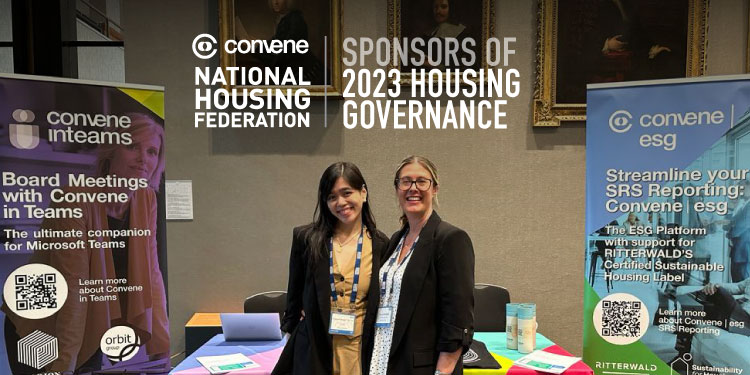With ESG regulations on the horizon for many industries and sectors in the UK, and investors and consumers alike requiring organisations to have good ESG practices, it is important to understand how these efforts can be undermined.
The ‘E’ in ESG is particularly under fire, as an increase in greenwashing activity in recent years means that environmental efforts are being falsified. This makes it even harder to know exactly what sustainable improvements are being made, and who to hold accountable for this.
Housing Associations should care about greenwashing practices because environmental efforts being undermined can be damaging to the sector, its markets and the economy, as well as the planet.
However, before we dive into why you should take notice of greenwashing, let us first explore what greenwashing is and what it can look like.
What Is Greenwashing?
Greenwashing is the attempt to make a product, practice or even an entire organisation appear more environmentally friendly, ‘green’, and sustainable than it really is.
The lines between genuine reporting on ESG efforts and greenwashing can be a little blurred, due to the evolving nature of the ESG landscape and its regulations, so it’s crucial to understand what actually constitutes greenwashing.
Forms of greenwashing include:
- Selective disclosure: Not providing a full comprehensive view of an organisation’s environmental impacts.
- Meaningless targets: Establishing environmental targets without putting into place the practices, plans and structures needed to achieve them.
- Virtue signalling or symbolic actions: Using trending environmental topics to bolster your organisation without making any meaningful action to address these issues.
- Lobbying efforts: Lobbying governments and policy-makers in order to avoid environmental regulation
- Baseless claims: Utilising vague ‘green’ buzzwords and terms without providing evidence or information of the organisation’s environmental efforts, such as “environmentally friendly”, “sustainable”, “eco”.
- Hidden trade-offs: Emphasising one positive environmental action while ignoring other negative aspects or actions in order to create a sustainable image.
- The ‘green halo’: Using imagery that is associated with ‘being green’ in order to colour a reader or consumer’s perception of the organisation without making any real efforts.
- Misrepresenting motivations: Portraying actions taken under legal obligations as the organisation taking initiative in helping the environment.
- Exaggerated progress: Misrepresenting the actions and progress an organisation has made as more than it actually is.
Why Is Greenwashing A Problem?
Greenwashing is problematic simply because it undermines actual efforts to tackle climate change. By organisations making themselves appear more sustainable than they are, they are denying and derailing genuine progress being made and misrepresenting how much is truly being achieved.
Greenwashing also distorts capital markets, as it presents inaccurate information which can lead to poor investment decisions and to the misallocation of capital which was intended for sustainable investments. In the long-term, this can contribute to major economic and financial instability, by undermining trust in the market and its accuracy.
How Can Greenwashing Affect Housing Associations?
The climate crisis has had a significant impact on consumer attitudes, with the future likely seeing a rise in eco-conscious buyers as more customers want to secure a green mortgage and greener finances.
With the housing market being responsible, according to the Energy Savings Trust, for 21% of carbon emissions in the UK, it is crucial that the Housing sector can recognise and combat greenwashing.
Greenwashing affects Housing Associations significantly, as they rely on the capital markets and their information to make business decisions, and so it is important to fully understand how greenwashing can affect your association.
One consequence of greenwashing is reputational risks. Greenwashing accusations have implications for an associations’ image and for brand loyalty in both the short and long term. It can create more intensified scrutiny from the public, investors, suppliers, or employees, as well as activity from social pressure groups and NGOs.
Another consequence of greenwashing is the legal and regulatory risks that are becoming more apparent. Enforcement action, litigation and civil suits, although less common in the UK, are on the rise globally. The sectors that are particularly focused on in these suits are energy-based sectors, but it doesn’t mean the increase in these kinds of cases isn’t a cause for concern for every sector.
Housing associations also run the financial risk of shareholder scrutiny in the face of greenwashing, as investors are often sceptical of ESG statements and commitments. Organisations which investors accuse of greenwashing often haven’t taken enough sustainability action and open themselves up to the risk of hostile questions and potential activism.
So, Why Should Housing Associations Care About Greenwashing?
It is vital that housing associations care about greenwashing, because of its potential impact not only on the economy and capital markets, but on the very planet that we live on.
Greenwashing undermines the efforts your association can make towards sustainability and net zero, and puts greater pressure on the sector by distorting the actual progress of ESG practices.
For housing associations, making sure that ESG initiatives are accurate, clear and free of possible greenwashing tactics is important in pushing the sector towards a sustainable future.
ESG in housing can be difficult to keep up with, as there are very specific ESG factors that other sectors may not have to consider. This is why effective ESG reports are more important than ever, and why the Sustainability Reporting Standard was developed to help improve the ESG performance of the sector.
How Convene Can Help
Convene, working with our vast number of Housing Industry clients, has developed a new software tool, Convene ESG, to help you produce the best ESG reports possible.
Our end-to-end approach simplifies and automates much of the process, and will help your organisation not only generate a report, but be able set up and track your ESG goals so you can have a clear sustainability plan.
The SRS framework is also already built-in, so you can create the perfect ESG report for your specific housing needs, helping your association to achieve your sustainability goals and avoid potential greenwashing.
You can learn more about how Convene ESG can help your association in meeting ESG requirements here, or book a free demo today.








